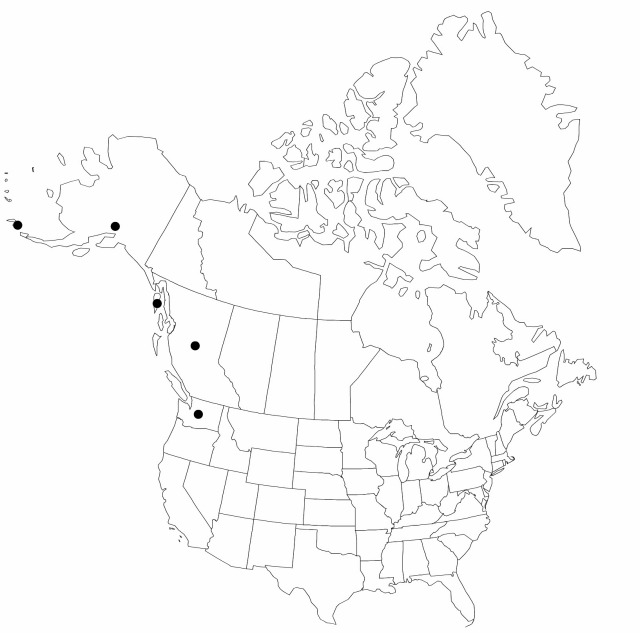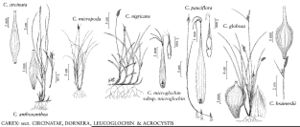Difference between revisions of "Carex circinata"
Mém. Acad. Imp. Sci. St.-Pétersbourg Divers Savans 1: 209, plate 6. 1831.
IllustratedEndemic
imported>Volume Importer |
imported>Volume Importer |
||
| Line 53: | Line 53: | ||
|publication year=1831 | |publication year=1831 | ||
|special status=Illustrated;Endemic | |special status=Illustrated;Endemic | ||
| − | |source xml=https:// | + | |source xml=https://bitbucket.org/aafc-mbb/fna-data-curation/src/2e0870ddd59836b60bcf96646a41e87ea5a5943a/coarse_grained_fna_xml/V23/V23_991.xml |
|genus=Carex | |genus=Carex | ||
|section=Carex sect. Circinatae | |section=Carex sect. Circinatae | ||
Latest revision as of 21:44, 5 November 2020
Plants cespitose, short-rhizomatous. Culms 5–25 cm. Leaves involute, curved, 0.5 mm wide. Spike androgynous. Pistillate scales shorter to longer than and as wide as to wider than perigynia, often covering all but beak, margins hyaline, apex obtuse to acute or, occasionally, cuspidate. Perigynia 4.5–6 mm, distal margins finely serrulate; beak tip hyaline.
Phenology: Fruiting Jun–Aug.
Habitat: Cliffs, talus slopes, rocky knolls
Elevation: 60–1000 m
Distribution

B.C., Alaska, Wash.
Discussion
W. J. Cody (1996) mapped one locality for Carex circinata in Yukon and also stated that its occurrence is disputed. Carex circinata is unexpectedly absent from the adjacent Russian Far East, where a close relative, C. hakkodensis Franchet, occurs (T. V. Egorova 1999).
Selected References
None.
Lower Taxa
None.
